Related Research Articles

Tel Aviv University (TAU) is a public research university in Tel Aviv, Israel. With over 30,000 students, it is the largest university in the country. Located in northwest Tel Aviv, the university is the center of teaching and research of the city, comprising 9 faculties, 17 teaching hospitals, 18 performing arts centers, 27 schools, 106 departments, 340 research centers, and 400 laboratories.
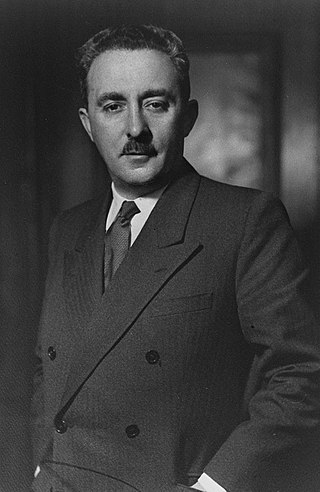
Moshe Sharett was the second prime minister of Israel and the country’s first foreign minister. He signed the Israeli Declaration of Independence and was a principal negotiator in the cease-fire agreements that concluded the 1948 War of Independence. Beginning in 1933, he headed the political department of the Jewish Agency. He also founded the Jewish Brigade, which fought with the British Army during World War II.
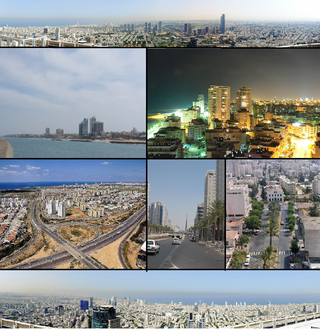
Gush Dan or Tel Aviv metropolitan area is a conurbation in Israel, located along the country's Mediterranean coastline. There is no single formal definition of Gush Dan, though the term is in frequent use by both governmental bodies and the general public. It ranges from combining Tel Aviv with cities that form an urban continuum with it, to the entire areas from both the Tel Aviv District and the Central District, or sometimes the whole Metropolitan Area of Tel Aviv, which includes a small part of the Southern District as well. Gush Dan is the largest conurbation and metropolitan area in Israel and the center of Israel's financial and High technology sector. The metropolitan area having an estimated population of 4,156,900 residents, 89% of whom are Israeli Jews.
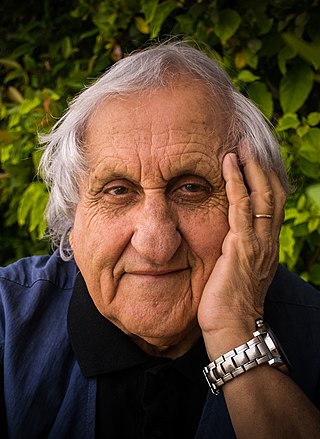
Avraham Gabriel "Boolie" Yehoshua was an Israeli novelist, essayist, and playwright. The New York Times called him the "Israeli Faulkner". Underlying themes in Yehoshua's work are Jewish identity, the tense relations with non-Jews, the conflict between the older and younger generations, and the clash between religion and politics.

Hadassah Medical Center is an Israeli medical organization established in 1934 that operates two university hospitals in Jerusalem as well as schools of medicine, dentistry, nursing, and pharmacology affiliated with the Hebrew University of Jerusalem. Its declared mission is to extend a "hand to all, without regard for race, religion or ethnic origin."

Moshe Gil was an Israeli historian.
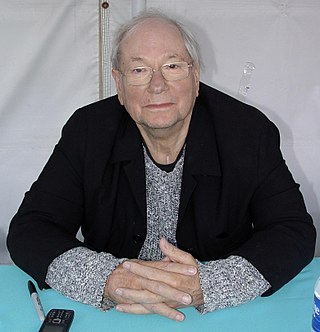
Yoram Kaniuk was an Israeli writer, painter, journalist, and theatre critic.

Itamar Rabinovich is the president of the Israel Institute. He was Israel's Ambassador to the United States in the 1990s and former chief negotiator with Syria between 1993 and 1996, and the former president of Tel Aviv University (1999–2007). Currently he is professor emeritus of Middle Eastern History at Tel Aviv University, distinguished global professor at New York University and a distinguished fellow at the Brookings Institution.

Rabbi Ya'akov Moshe Toledano was an Israeli rabbi who served as Minister of Religions for two brief periods between 1958 and 1960. He also served as chief rabbi of Cairo, Alexandria and Tel Aviv.

Moshe Bejski was a Polish-born Israeli Supreme Court Justice and President of Yad Vashem's Righteous Among the Nations Commission. After surviving the Holocaust with the help of Oskar Schindler, Bejski immigrated to Israel. In 1961, he testified about his experiences during the Holocaust during the trial of Adolf Eichmann. He served on the Tel Aviv-Yafo district court from 1968 to 1979 and was appointed to the Supreme Court of Israel, where he served from 1979 to 1991. As President of the Righteous Commission from 1975 to 1991, Bejski helped honor thousands of Holocaust rescuers. He also headed the Bejski Commission in the aftermath of the 1983 Israel bank stock crisis, which led to the nationalization of most of Israel's major banks.
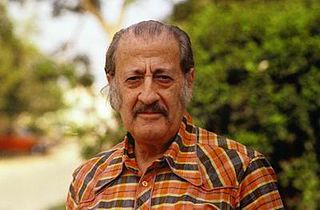
Moshe Castel was an Israeli painter.
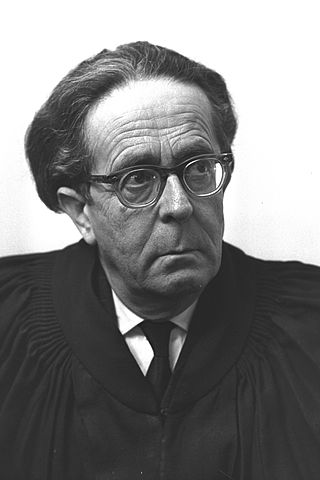
Moshe Zilberg (1900–1975) was a leading Israeli jurist.
Moshe Shokeid is a prominent social anthropologist specializing in American and Israeli studies. He has taught in the Department of Sociology and Anthropology at Tel Aviv University since 1968, and has been a visiting scholar at several universities in the U.S. and Europe. Shokeid has conducted research on topics related to both Israeli and U.S. society. He is the author of six books in English, four books in Hebrew, a few editorial books and many professional journal articles. He was a winner of the Ben-Zvi prize, named after Israel’s second President, who spent his life working to protect Israel's religious and cultural diversity.

Moshe Nativ was Israel Defense Forces Major General and former head of the Manpower Directorate.
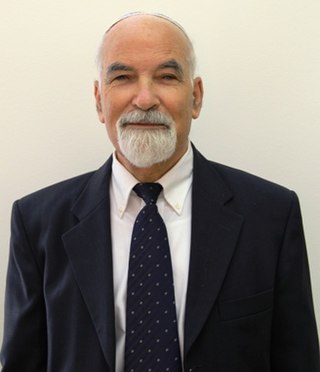
Shimon Sharvit is an Israeli Professor and college administrator.
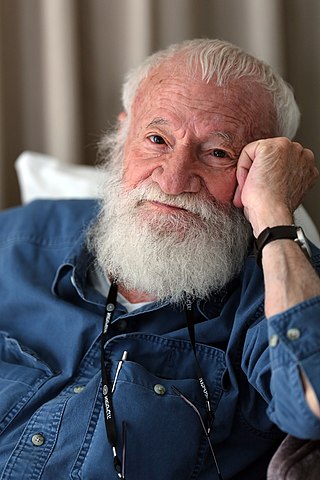
Yoram Taharlev was an Israeli poet, lyricist, and author. He wrote lyrics for hundreds of songs recorded by prominent composers and performers.
Moshe Roas is an Israeli artist, who works in sculpture, drawing, printmaking and installation art. He has exhibited in galleries and museums in Netherlands, (Germany), Poland, United States, South Korea and Israel. These include the Tel Aviv Museum of Art, the Eretz Israel Museum, the Jerusalem Print Workshop and the Tel Aviv Artists' House.

Moshe "Musa" Chelouche was a Jewish politician and businessman in Mandatory Palestine and Israel who served in 1936 for 10 days as the mayor of Tel Aviv.
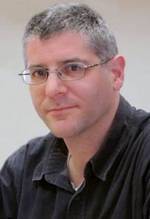
Matthew Morgenstern, also known as Moshe Morgenstern, is an Israeli linguist and religious studies scholar known for his work on Eastern Aramaic languages, especially Mandaic. He is currently Full Professor in the Department of Hebrew Language and Semitic Linguistics at Tel Aviv University.
References
- ↑ Auerbach, Jerold S. (2009-07-16). Hebron Jews: Memory and Conflict in the Land of Israel. Rowman & Littlefield Publishers. ISBN 978-0-7425-6617-0.
- ↑ "משה מני", ויקיפדיה (in Hebrew), 2021-06-01, retrieved 2021-06-21
- 1 2 3 4 5 Gabison, Yoram (May 24, 2013). "From Treating Kings and Shahs to Revolutionizing Israeli Medicine - the Enigmatic Life of Professor Moshe Many". Haaretz.
- 1 2 3 4 "Form 6-K". www.sec.gov.
- ↑ "פרופסור משה מני, הלך לעולמו בגיל 87". www.ashqelon.net (in Hebrew). Retrieved 2021-06-21.
- 1 2 3 "Academic Leadership". Ashkelon Academic College.
- ↑ "Presidents of Tel Aviv University". Tel Aviv University. 10 December 2013.
- ↑ "Universities Face a Crisis in Israel". The New York Times. February 8, 1987.
- ↑ "Spread public health in South with higher education". The Jerusalem Post. October 11, 2014.